What is climate adaptation and resilience?
Climate adaptation refers to the adjustments made to ensure that our region can better prepare for climate threats.
The goal of adaptation is climate resilience, where our communities, infrastructure and natural environment can withstand, cope with and bounce back from climate impacts.
What is climate change adaptation?
Our climate is changing. The world’s temperature is rising, bringing with it changes to the climate and to weather patterns.
In the West Midlands we’re going to see:
- Warmer, wetter winters
- Hotter, drier summers
- And more extreme weather events
These new weather events aren’t what we’re used to in the West Midlands. Unless we adapt to and prepare for the changing climate, our people, infrastructure and natural environment will be exposed to a number of climate-related impacts.
Find out more about the WMCA's climate adaptation work by clicking on one of the boxes below.

Regional Adaptation Network (RAN)
The Regional Adaptation Network (RAN) exists to connect and build the adaptive capacity of key players who have a role in preparing the West Midlands region for climate change.
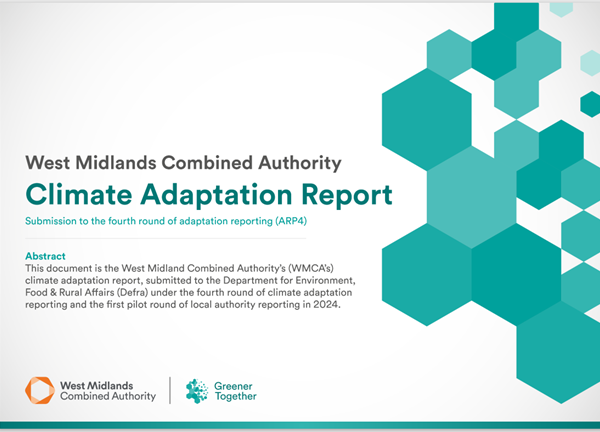
Climate Adaptation Reporting
Click here for more information on the WMCA’s submission to government’s fourth round of climate adaptation reporting, including the climate risks facing the WMCA and associated adaptation actions.
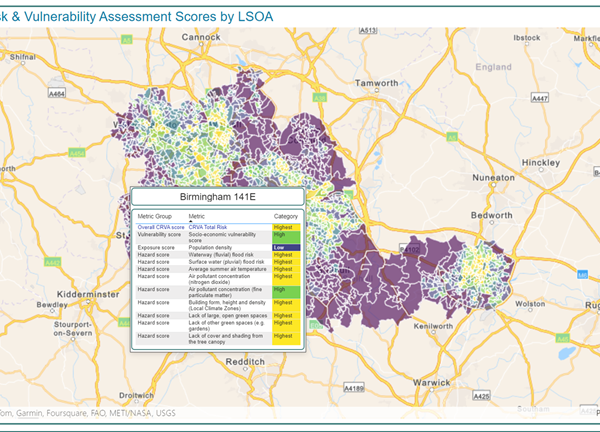
Climate Risk and Adaptation Data and Intelligence
Click here for more information on climate risks and impacts facing the West Midlands
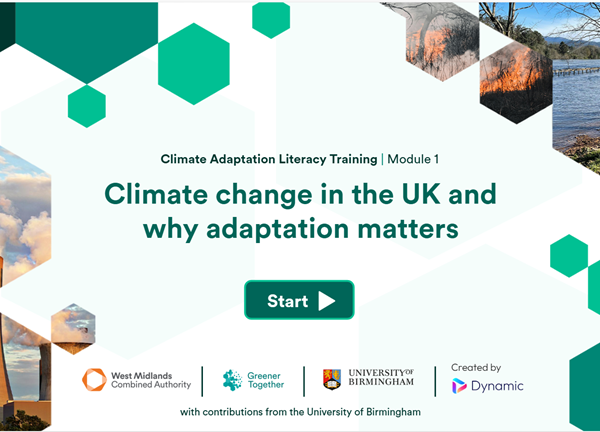
Climate Adaptation Guidance and Support
Click here for more information on climate adaptation options and guidance from trusted sources
What does climate adaptation look like in an urban area?
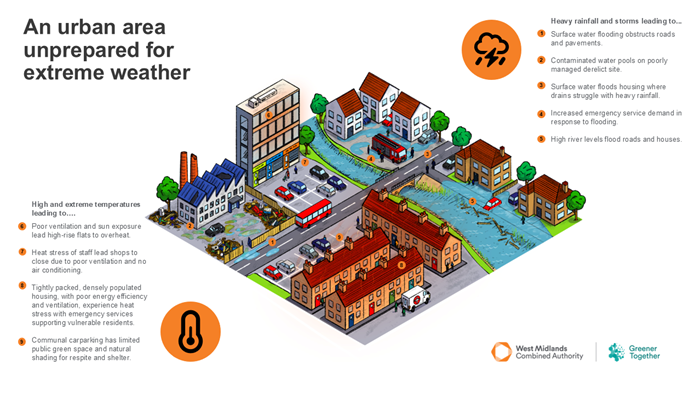
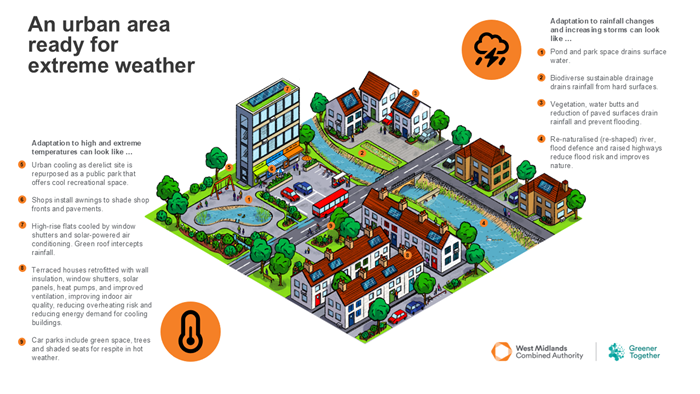
Contact us
For more information on any of our adaptation work, please contact us at environment@wmca.org.uk